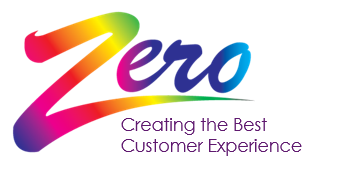As many of you may be aware, the telecommunications industry is preparing for a major transition. Openreach has just hit a significant milestone by phasing out 414 telephone exchanges in favour of a fully digital network that uses Internet Protocol (IP) across a fibre-based service.
This change marks a major shift towards the eventual phasing out of the ageing Public Switch Telephone Network (PSTN) in the UK.
So what does this mean for businesses?
It means that companies will need to start thinking seriously about how they’re going to handle this transition. The switch-off won’t just affect voice services but may also require businesses to upgrade their broadband. Any equipment that currently uses the PSTN and Integrated Services Digital Network (ISDN) will stop working.
At this critical juncture, businesses need to start considering alternatives to traditional phone systems that can seamlessly transition into the new digital era.
One such option is the use of Voice over Internet Protocol (VoIP) systems, which offer a range of benefits over traditional phone systems. As experts in the field, we can help guide you through the transition and help you decide whether an on-premise or cloud-based VoIP system is right for your business.
In this blog, we’ll dive deeper into some of the key differences between on-premise and cloud-based VoIP systems, providing you with the knowledge and insight you need to make an informed decision about your telecommunications infrastructure.
Read on to find out more, and if you’re interested in learning more about how we can help you make the switch, be sure to reach out and schedule a consultation
Voice over Internet Protocol (VoIP) has revolutionised the way we communicate over the internet. It has made communication easier, more efficient, and cost-effective.
The technology has been around for a while now, and there have been several developments and improvements over the years.
This blog will explore the differences between the original on-premise VoIP systems and the newer cloud-based VoIP systems.
On-Premise VoIP systems:
On-premise VoIP systems are the original VoIP systems that have been around for a while.
These systems are installed and run on servers located on-premise, that is, within an organisation’s office or data centre.
The PBX, or Private Branch Exchange, is the central unit that manages the calls and routes them to the appropriate destinations.
One of the advantages of an on-premise VoIP system is that it can be more cost-effective, particularly for organisations with lots of users and calls. It offers more control over the system, and organisations can customise the features to suit their specific needs.
However, it comes at the expense of future manoeuvrability in terms of being cumbersome if moving locations lessens the ability to scale up / down and major rescaling could involve purchasing additional hardware or rendering previously purchased hardware defunct if scaling down dramatically.
If the internet fails at the location of the PBX, it will not be possible to divert the calls elsewhere quickly or efficiently.
Cloud-based VoIP systems:
Cloud-based VoIP systems, also known as Hosted telecommunication systems, are the newer, more modern and increasingly more popular option. These systems are located in the cloud, which means that the servers and software are hosted and managed by a third-party provider. The PBX is located in the cloud and is accessible over the internet.
One of the main advantages of a cloud-based system is that it is highly scalable, and organisations can easily add or remove users as their needs change.
This flexibility allows businesses to grow and change without having to invest in additional hardware. The system is also easier to maintain and manage, as the provider takes care of the hardware and software updates.
In the event of an internet outage, calls can be easily diverted to a different location, ensuring that businesses can continue to operate.
Here are six key differences between traditional VoIP and cloud-based systems:
1. Enhanced Security:
Hosted cloud-based VoIP systems provide advanced security features to safeguard your business’s communications.
With encryption, firewall protection, and secure login protocols, these systems are managed by experienced IT professionals who ensure that the latest security measures are in place to protect your company and customer data.
As cyber threats and data breaches become more common, it is important to ensure that your communications are secure. By using a hosted VoIP system, you can rest assured that your communications are protected with the latest security measures.
2. Cost:
On-premise VoIP systems can be more cost-effective for organisations with a large number of users and calls. However, the cost of hardware, installation, and maintenance can be significant, and it can be expensive to scale up or down.
On the other hand, Cloud-based VoIP systems have lower upfront costs and are more flexible, allowing businesses to add or remove users as needed.
3. Scalability:
On-premise VoIP systems are less scalable than cloud-based VoIP systems. Scaling up can require the purchase of additional hardware, while scaling down could render previously purchased hardware defunct.
Cloud-based systems can be easily scaled up or down, and businesses only pay for what they need.
4. Management and maintenance:
On-premise VoIP systems require in-house expertise to manage and maintain the system. This can be costly and time-consuming, and businesses may need to hire IT staff to manage the system.
However, Cloud-based systems are managed and maintained by the provider, which can save businesses time and money.
5. Mobility:
On-premise VoIP systems can be cumbersome to move, and businesses may need to invest in additional hardware if they relocate.
Cloud-based systems are location-independent as long as there is an internet connection. This means that employees can work from anywhere and still be connected to the phone system, making remote work and business continuity much easier to manage.
6. Reliability:
On-premise VoIP systems can be vulnerable to local outages and interruptions, as they rely on the local internet connection. If a power or internet outage occurs, the system could be down for an extended period, leading to lost business and frustrated customers.
Cloud-based systems are more reliable, as the provider typically has multiple data centres and redundant systems to ensure continuous service.
In conclusion, both on-premise and cloud-based VoIP systems have advantages and disadvantages.
On-premise systems can be more cost-effective and offer more control, but they are less scalable, require in-house management, and can be less reliable. Cloud-based systems are more flexible, scalable, and require less maintenance, but they may have higher ongoing costs and rely on a reliable internet connection.
When deciding which system is right for your business, it’s important to consider your specific needs and priorities
- If cost is a primary concern, an on-premise system may be the better option. An on-premise VoIP system can be more cost-effective, particularly for organisations with a lot of users and calls. However, the initial investment can be higher as it may require the purchase of expensive hardware and software and require ongoing maintenance and IT support.
In contrast, cloud-based VoIP systems typically have lower upfront costs, as they require minimal hardware and no expensive on-site installation.
- If security, scalability, mobility, and reliability are more important, a cloud-based system may be the better choice.
Ultimately, both systems offer significant benefits, and the decision comes down to what is right for your business. By understanding the key differences between the two, you can make an informed decision that will help your business thrive in the new era of VoIP technology.
If you’re still unsure which VoIP or Hosted Telecommunication system is right for your business, speak to one of our team who can help you make an informed decision.
At The Zero Group, we specialise in providing VoIP solutions for businesses of all sizes. Our team of experts can work with you to assess your needs and recommend the best system for your unique situation.
Contact us today 03333 207 200 or enquiries@www.zeroenterprises.co.uk – to schedule a consultation and find out how we can help you choose the perfect solution that’s right for your business. We look forward to working with you!

